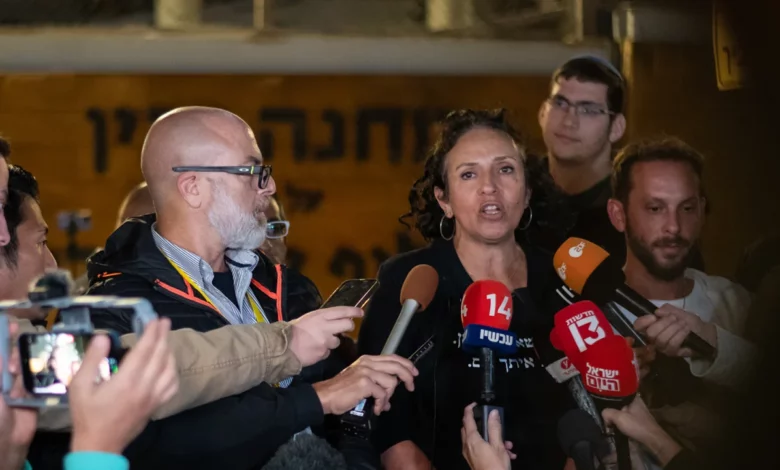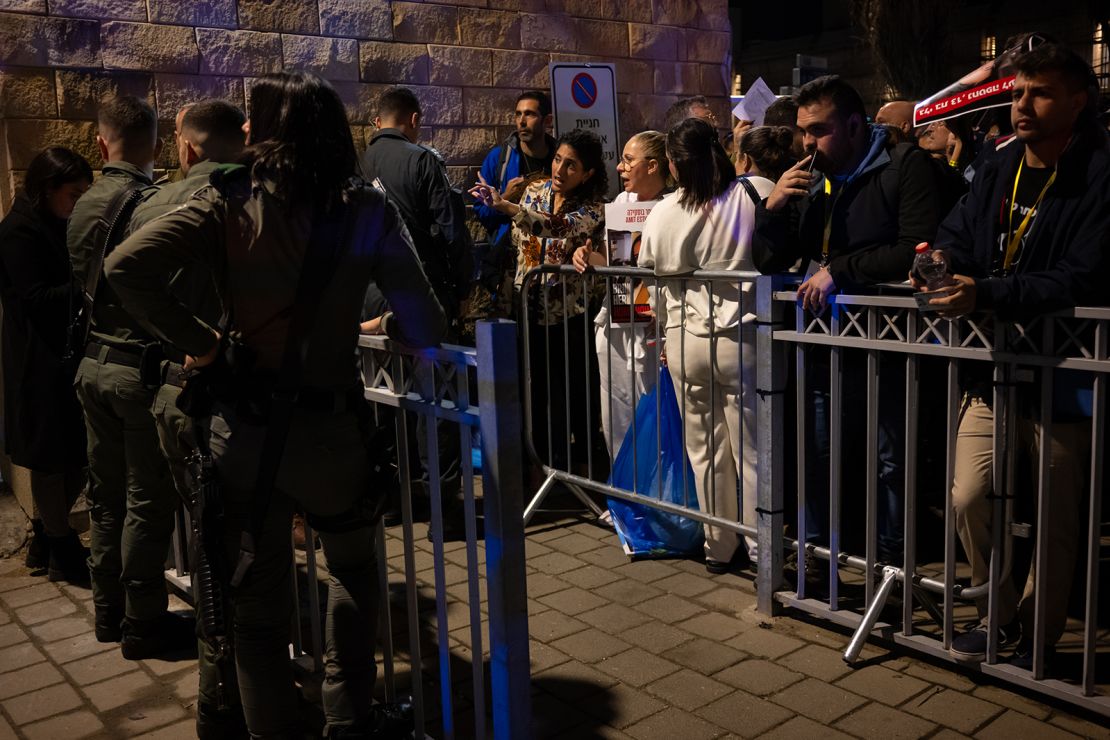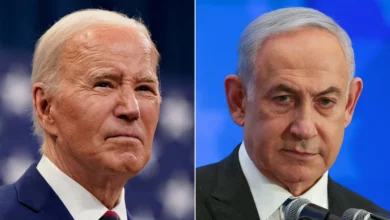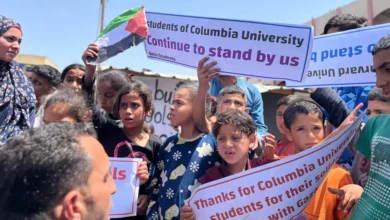
“I demand their commitment that everyone is returning home. All the hostages. We must get answers, and a commitment … in a written form,” said Shai Wenkert, who son Omer is being held hostage in Gaza by the militant group Hamas.
Wenkert spoke to media on Monday, before he and other relatives met with Prime Minister Benjamin Netanyahu and his war cabinet in Tel Aviv.
So far only a handful of families have met with Netanyahu – infuriating hundreds of other relatives of hostages who say the government isn’t doing enough to free them.
But for some, the meeting only deepened their frustration. Udi Goren, whose cousin Tal Chaimi was taken captive, left the meeting early, saying he felt there was no new information on the hostages provided by the war cabinet, including details about a possible deal to release them.

An estimated 239 hostages are being held in Gaza, abducted during Hamas’ bloody October 7 attacks on Israel that killed around 1,200 people, according to the Israeli military – the largest such attack on Israel since the country’s founding in 1948.
Just a handful of hostages have been released so far. On October 20, two Americans – Judith Tai Raanan and her 17-year-old daughter Natalie Raanan – were freed on humanitarian grounds following negotiations between Qatar and Hamas.
Soon after, two Israeli women, Nurit Cooper and Yocheved Lifshitz, were also released.
Lifshitz said she “went through hell,” describing being snatched from her home, driven off on a motorbike before being taken to a network of tunnels.
Israel responded to the October 7 attacks by declaring war on Hamas and imposing a blockade of Gaza, plunging the strip into a dire humanitarian crisis. Around 12,700 Palestinians have died since the war began, according to the Palestinian Ministry of Health in the West Bank, which draws its data from Hamas-run health authorities in the Strip.
And while there is still overwhelming support in Israel for the war on Hamas, there is growing criticism of Netanyahu and his administration, who many blame for failing to anticipate the October 7 attack, and for the lack of progress in hostage releases.
Earlier on Monday, public anger spilled over during a committee meeting in the Israeli parliament, with family members of hostages clashing with National Security Minister Itamar Ben-Gvir and other far-right government figures.
Ben-Gvir, a divisive figure in Israeli politics who wants Israel to annex the Palestinian territories, is promoting legislation that would see the death penalty handed down to terrorists.
But many hostage families accuse Ben-Gvir of endangering their loved ones further, arguing that Hamas could be less willing to release hostages if there is suggestion that Israel might execute Palestinian prisoners.
In the parliament meeting, family members held pictures of their loved ones and vented their frustrations aloud. “Bring them home!” chanted Gil Dickmann, whose cousin is being held in Gaza.
“Maybe instead of talking about the dead, talk about the living. Stop talking about killing Arabs. Talk about saving Jews. This is your job!” shouted Hen Avigdori, whose wife and daughter were taken on October 7.
Almog Cohen, a colleague of Ben-Gvir in the Jewish Power party, fired back at family members. “You don’t have a monopoly on pain. We also buried more than 50 friends,” Cohen said.
Ben-Gvir’s proposed legislation is making its way through parliament. It still has several stages to pass before becoming law and could yet be withdrawn.
Hamas leader Ismail Haniyeh said in a statement on Telegram that the group was “close to reaching a truce agreement” with Israel, following weeks of negotiations between the United States, Israel and Hamas, mediated by Gulf state Qatar.
The statement came after Hamas had delivered a response to mediators in Qatar. “The movement delivered its response to the brothers in Qatar and the mediators, and we are close to reaching a truce agreement,” Haniyeh said.
Haniyeh did not provide additional details about the potential agreement.
In recent days, sources told CNN a possible deal to secure the release of some hostages and a temporary pause in fighting may be in sight. An agreement has yet to be struck, with several sticking points left to work through – though negotiators are expressing rare optimism, sources say.
Netanyahu has repeatedly expressed two goals of the war – the release of all hostages, and the destruction of Hamas. Israel has rejected international calls for any ceasefire without the return of hostages.




